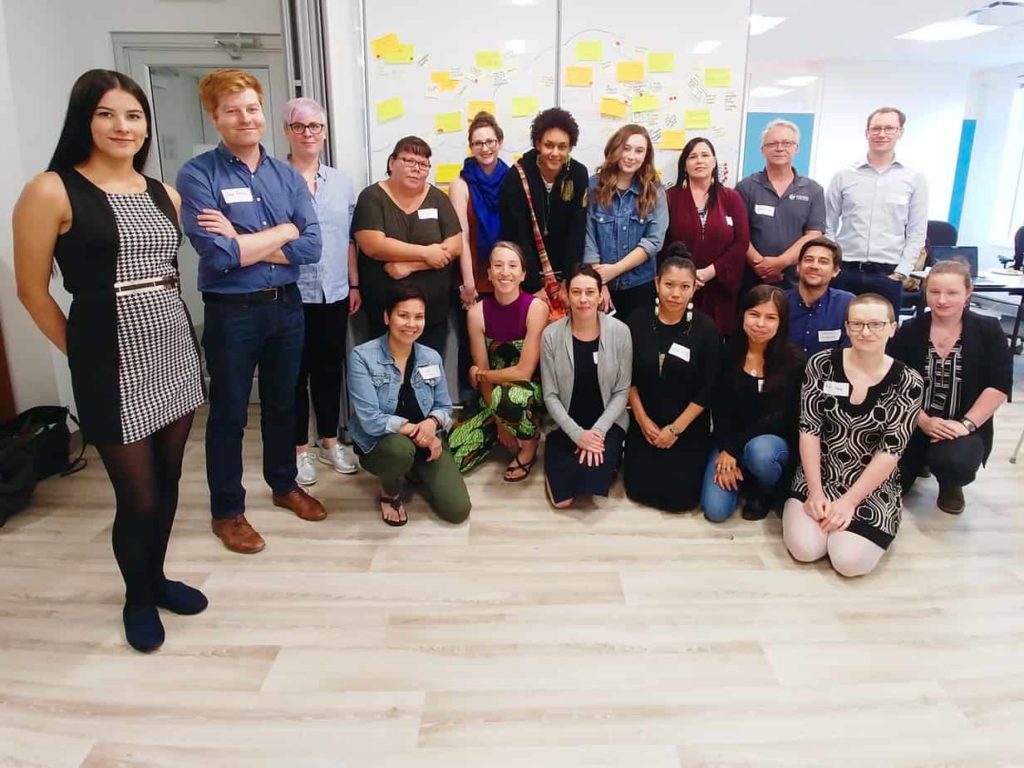
When I first started reporting on B.C.’s child-welfare system a few years ago, I didn’t know where to begin. The system is so complex and the stakes are about as high as it gets for children and families.
I didn’t want to tell the wrong story, but I also didn’t want to stay quiet.
I’d heard from too many youth and parents who felt unrepresented or misrepresented by media coverage. Social workers told me the media’s tendency to focus solely on the tragic doesn’t serve anyone, least of all youth who are looking for inspiration. And Indigenous leadership at child-welfare agencies told me they had little to no relationships with the — disproportionately white — media.
This is what motivated me to work with a team of other journalists to launch Spotlight: Child Welfare. Our collaborative journalism project is made up of journalists reporting for The Discourse, APTN, Black Press, National Observer, The Runner, Star Vancouver, The Tyee and Vancouver Courier. Together, we aim to tell better, deeper child-welfare stories and to build a model for collaborative journalism that can be used in other regions or to explore other issue areas.
What I love most about this project is that not only are we working together to optimize our respective resources to cover more ground, but we’re also working closely with community members. This keeps us accountable and inspired. It allows us to build trust and relationships — a prerequisite for deeper stories.
As a white settler in a country that has systematically undermined Indigenous people, leading to their gross overrepresentation in the child-welfare system, I have a role to play in reconciling what is broken. As a journalist in an industry responsible for perpetuating negative stereotypes about Indigenous people and excluding them from our newsrooms and our stories, I have a role to play in pushing myself and my peers to reexamine our standard practices and consider how we can better serve.
Collaborating from the beginning
We got started in June 2018, with funding from the Vancouver Foundation, by bringing together 35 child-welfare system stakeholders and a dozen journalists for a one-day workshop. The Discourse’s pitch to the Vancouver Foundation was to fund the initial gathering so we could see if there’s a desire for a bigger collaborative project. If not, we’ll share our learnings; if so, we’ll move forward with a project.
It turns out there was a lot of interest in collaborating. People with a range of experiences in the child-welfare system — youth from care, professors, parents and youth workers — worked together to identify aspects of the system in need of deeper coverage, and came up with ideas for a one-year project.

Ever since we’ve been creating paid opportunities for community members to contribute to the project, so they can develop new skills, learn about our journalistic process — and inform it. We’re practicing journalism that is directed by and accountable to the community, responsive to its coverage needs and determined to shed much-needed light on the complex issues they’ve identified.
Here’s a recap of some of our big moments so far
- Last fall we put together an advisory committee. The committee is comprised mainly of Indigenous women — academics, seasoned social work practitioners and mothers — and their expertise has helped us hone our investigations and navigate ethical questions.
- In December 2018, youth artists helped us design our collaborative project’s logo, bringing their creativity and the wisdom they’d garnered from their experiences in the child-welfare system.
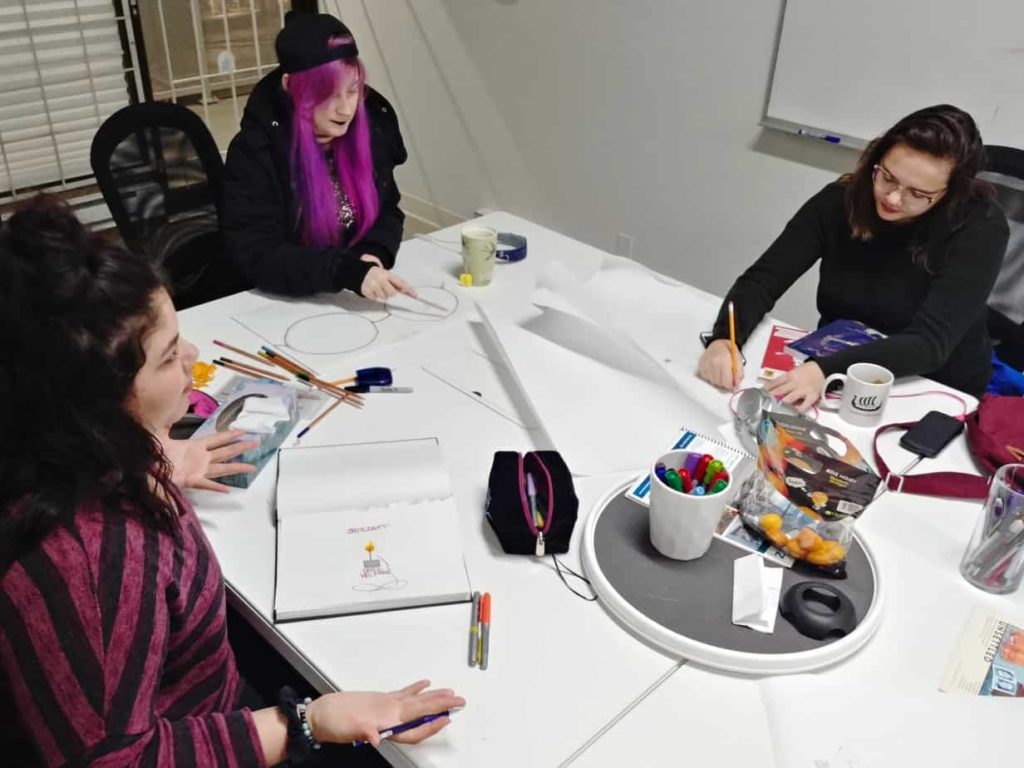
Youth artists brainstorm logo ideas for Spotlight: Child Welfare in December 2018.
- In January 2019, youth, parents and Indigenous community leaders joined us for a one-day workshop where they helped us understand and contextualize information we’d requested from the government. They came up with dozens of story ideas, which helped shape our story assignments. Because the community has directly informed the stories we’re covering, we can be confident that they will value and share the work we’re producing.
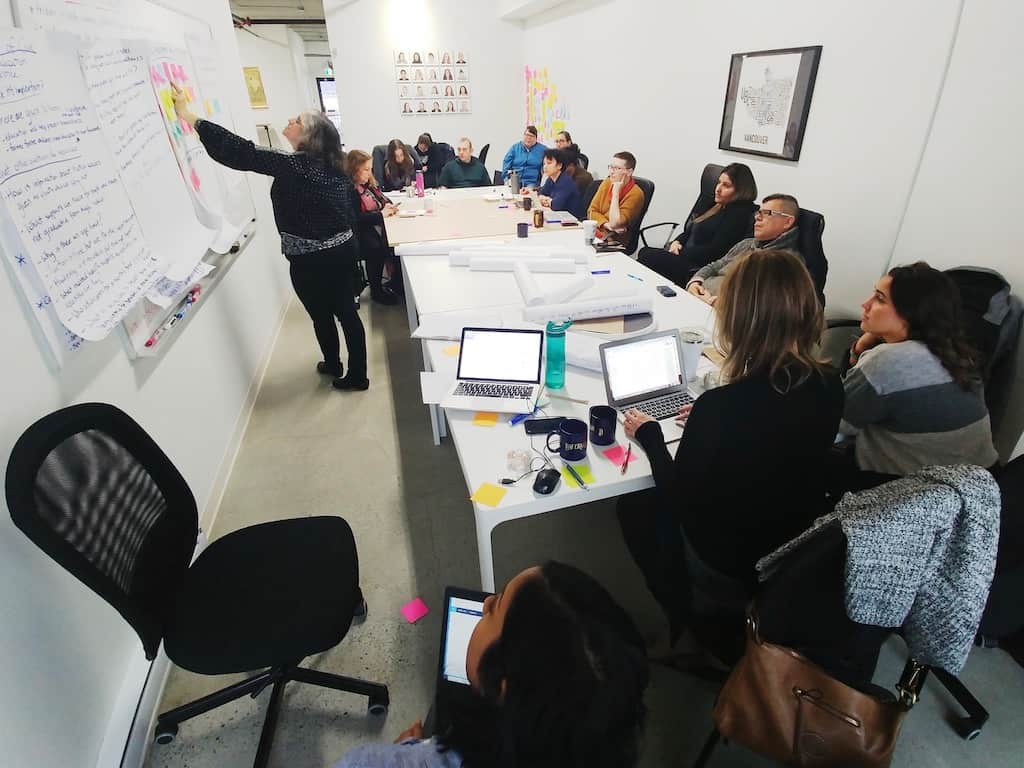
Community members help journalists contextualize information from government and brainstorm story ideas at The Discourse office in January 2019.
- In April 2019 we published our first investigation. Youth and parents were instrumental in this reporting — which found that the ministry responsible for some of B.C.’s most vulnerable kids is failing to meet basic requirements for their care, according to the government’s own records.
For this investigation, led by The Discourse, community members helped us enter and analyze data from dozens of audits that the B.C. Ministry of Children and Family Development publishes to track how well they are serving children, youth and families. Data journalist Francesca Fionda then built a database to make the information contained in the audits more accessible.
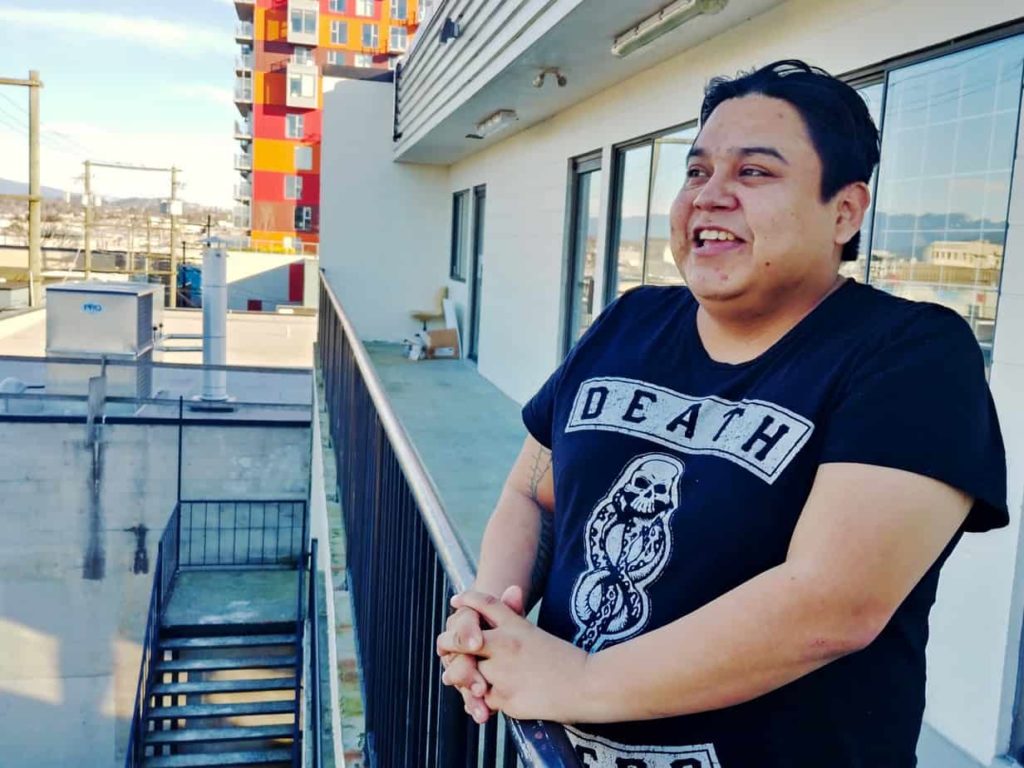
Ambrose Williams helped enter and analyze data from government audits for an investigation led by The Discourse. - In May, Spotlight: Child Welfare published a tipsheet for journalists covering the child-welfare system. It was compiled by Dylan Cohen, an Indigenous community organizer who was formerly in government care., and he presented his tips — based on interviews with youth and, parents, existing literature and his own lived experiences — at a recent workshop in Vancouver.
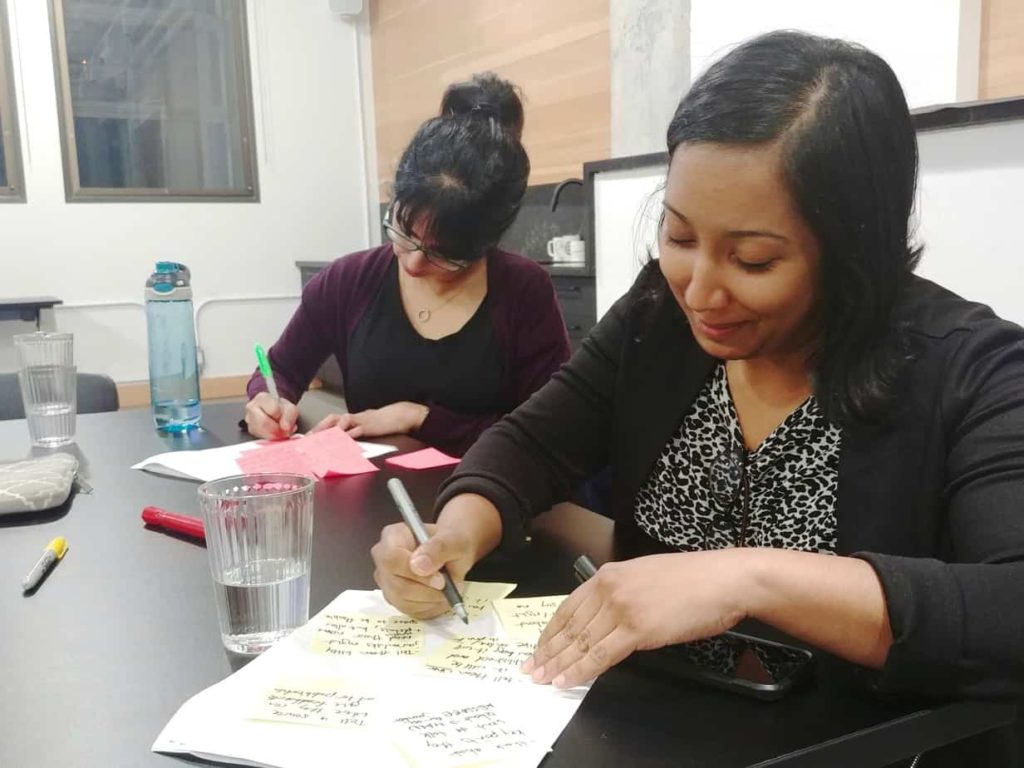
Alia Dharssi and Cherise Seucharan brainstorm ways journalists can help sources prepare for sensitive interviews at a best practices workshop in April 2019 in Vancouver.
Over the coming months, we’ll be publishing dozens of nuanced, data-driven, solutions-focused stories focused on the child-welfare system. We believe that changing the overall narrative will change the system.
Our impact so far
As a reporter it’s easy to just push publish and then move on to the next story. But as a collaborative of journalists trying to change the way stories are told, we need to make sure we’re listening every step of the way — including once our stories are published.
We created a survey to run below our published stories, so people can tell us whether they think our coverage is fair, accurate and representative of the community. We asked them to “help us understand the impact of this story” — we want to know if our coverage changed their views on the child-welfare system, taught them something new or inspired them to take action.
To date, we’ve received encouraging feedback:
“Thank you for shining the light on a system that is obviously broken and extremely racist.”
“Glad to know we were NOT ALONE as adoptive parents.”
“I have always known that the welfare system was badly flawed. I just never reflected on its scope in the whole province.”
We’ve also received critical feedback, pushing us to consider other angles and approaches:
“This series seems to vilify social workers and those working in the social work system, while positioning itself as presenting a fair discourse by quoting alarmist professors who are out of touch with modern realities of social workers and negating very real child protection concerns … Would be nice to see a strength-based approach of where there are positive stories and resiliency and collaboration for positive outcomes rather than sensationalizing divide for headlines.”
Reporting on the child-welfare system isn’t easy. If we truly aim to serve the public, we need to be willing to listen to tough feedback and consider refining our approach.
What I’ve learned from youth, parents and advocates is that any journalist, regardless of race, can play a positive role in shining a light on this system, provided we’re clear about our intentions, committed to fair, accurate and in-depth coverage, interested in building meaningful, trust-based relationships, and ready to acknowledge and grow from our mistakes.
The Spotlight: Child Welfare team hopes to expand on our work in the coming year. We would like to build a network of trained journalists, academics, community partners and folks with lived experience who can work together to deepen child-welfare reporting across Canada. If you want to get involved, click here. [end]
Spotlight: Child Welfare is partially supported by a $100,000 grant from the Vancouver Foundation; their support of the project does not imply endorsement of or influence over the content produced.



